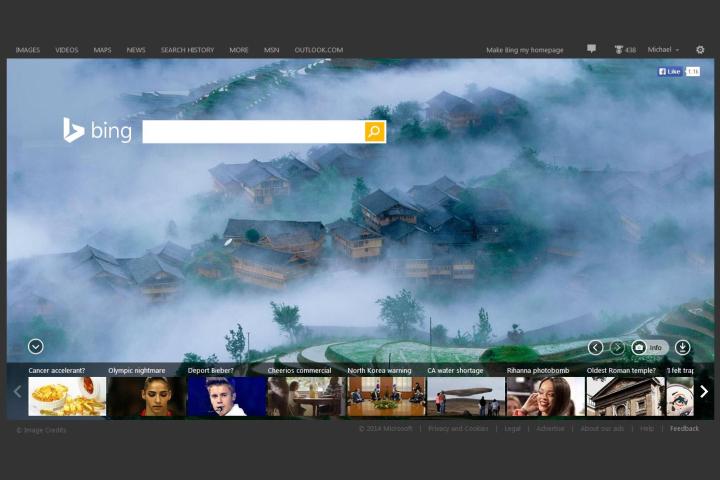
You can use search data to detect patterns in an arguably endless array of behaviors across infinite subjects. This includes the results of reality TV shows, which Bing will attempt to predict, according to an official blog post from Microsoft.
Beginning today, Bing will attempt to forecast the results of shows like “The Voice,” “American Idol” and “Dancing With The Stars,” by scanning search data, along with “social input” from Facebook and Twitter. For instance, if you head over to Bing right now and search “American Idol predictions” like we did, the top of the page will feature a set forecasts for five singers. We’ll refrain from adding in any potential Bing-generated spoilers here, but you’re free to check out what the search engine thinks for yourself.
“In broad strokes, we define popularity as the frequency and sentiment of searches combined with social signals and keywords. Placing these signals into our model, we can predict the outcome of an event with high confidence,” the Bing Predictions Team says in its blog post.
Microsoft also says that Bing’s predictions incorporate numerous emotionally-driven factors into how it generates predictions, allegedly accounting for biases like favoritism, regardless of how a person’s favorite singer/contestant performs from one week to the next.
Bing’s prediction service won’t start and end with reality TV shows though.
“You can expect more from us in this area beyond predictions for voting shows like The Voice, American Idol and Dancing With the Stars,” the Bing Predictions Team says.
We can’t help but wonder what Bing will be attempting to predict next, and how accurate the search engine’s forecasts will be. What’s clear is that we won’t have to wait too long to find out.


